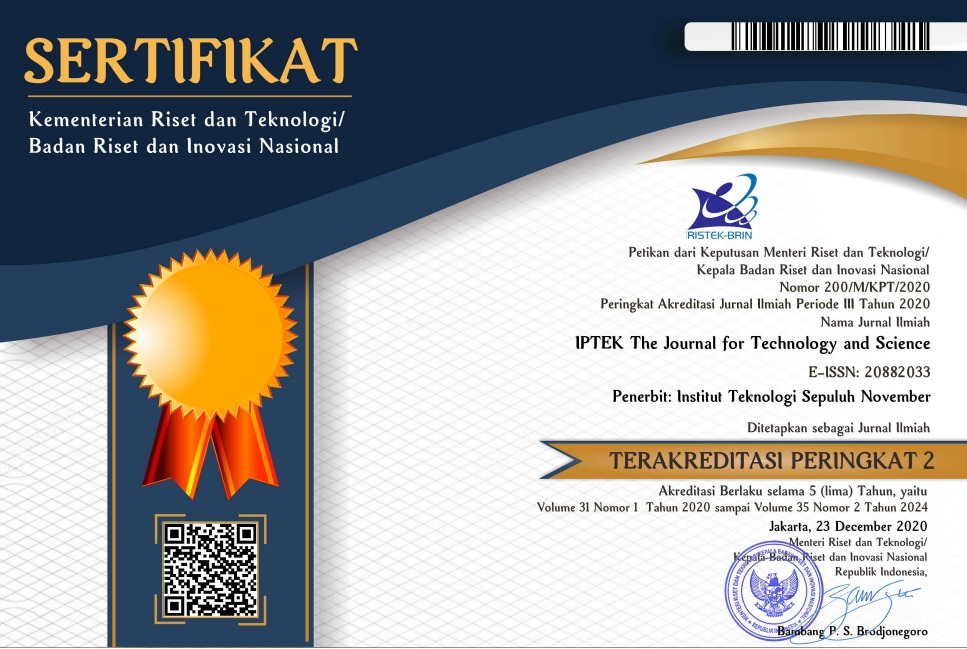Upgrading The Web-Based Credit Score Calculation System
Abstract
Keywords
Full Text:
Full TextReferences
Hakam F. Analisis Sistem Dan Teknologi Informasi Sebagai Acauan Dalam Perancangan Rencana Strategis Sistem Informasi Dan Teknologi Informasi (Renstra SI/TI) di Rumah Sakit Islam Yogyakarta Pdhi. JSI: Jurnal Sistem Informasi (E-Journal) 2017 apr;9(1). https://doi.org/10.36706/jsi.v9i1.4040.
Rahmawati ID, Sumarno S. Sistem Informasi Akuntansi dan Manajemen. Umsida Press; 2020. https://doi.org/10.21070/ 2020/978-623-6833-61-2.
Aththaariq A. Analisis Constraint dan Dampak Pengajuan Kenaikan Jabatan Akademik dan Fungsional Dosen Menggunakan Sistem Informasi Offline. Jurnal Studi Manajemen dan Bisnis 2021 dec;8(2):99–103. https://doi.org/10.21107/jsmb.v8i2.10234.
Kusdiawan W. Pengembangan Sistem Informasi Pengusulan, Penilaian Dan Penetapan Angka Kredit Guru (SIPULPENPAKGURU). Jurnal Interkom: Jurnal Publikasi Ilmiah Bidang Teknologi Informasi dan Komunikasi 2017 apr;12(1):20–29.https://doi.org/10.35969/interkom.v12i1.3.
Chotib AS. Sistem Informasi Penilaian Angka Kredit Dosen Berbasis Web (Studi Kasus PAK Online Kopertais Wilayah I DKI Jakarta). Applied Information System and Management (AISM) 2020 jul;3(1):21–30. https://doi.org/10.15408/aism.v3i1.16189.
Siahaan D. Analisa Kebutuhan dalam Rekayasa Perangkat Lunak. 1 ed. Penerbit Andi; 2012.
ISO/IEC JTC 1/SC 7 Software and Systems Engineering, Chen Y, editor, ISO - ISO/IEC 25010:2011 - Systems and Software Quality Requirements and Evaluation (SQuaRE). International Organization for Standardization; 2011. https://www.iso.org/standard/35733.html.
Siahaan D, Irhamni F. Advanced methodology for requirements engineering technique solution (AMRETS). International Journal of Advancements in Computing Technology 2012;4:75–80.
Mulyawan MD, Kumara INS, Swamardika IBA, Saputra KO. Kualitas Sistem Informasi Berdasarkan ISO/IEC 25010: Literature Review. Majalah Ilmiah Teknologi Elektro 2021 mar;20(1):15. https://doi.org/10.24843/mite.2021.v20i01.p02.
Nurjamil R, Sembiring F. Rancang Bangun Sistem Informasi Berbasis Web pada Perusahaan Penjualan Furniture Usaha Kecil dan Menengah. Jutisi : Jurnal Ilmiah Teknik Informatika dan Sistem Informasi 2022 apr;11(1):175. https://doi.org/10.35889/jutisi.v11i1.822.
Sanchez M. Assessing the quality of MOOC using ISO/IEC 25010. In: 2016 XI Latin American Conference on Learning Objects and Technology (LACLO) IEEE; 2016. p. 442–445. https://doi.org/10.1109/laclo.2016.7751803.
Gao M, Kortum P, Oswald F. Psychometric Evaluation of the USE (Usefulness, Satisfaction, and Ease of use) Questionnaire for Reliability and Validity. Proceedings of the Human Factors and Ergonomics Society Annual Meeting 2018 sep;62(1):1414–1418. https://doi.org/10.1177/1541931218621322.
DOI: http://dx.doi.org/10.12962%2Fj20882033.v33i2.13741
Refbacks
- There are currently no refbacks.
IPTEK Journal of Science and Technology by Lembaga Penelitian dan Pengabdian kepada Masyarakat, ITS is licensed under a Creative Commons Attribution-ShareAlike 4.0 International License.
Based on a work at https://iptek.its.ac.id/index.php/jts.


